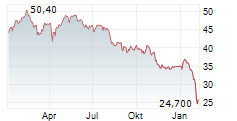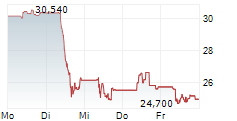Survey of 2,000 clinicians reveals many envisage AI playing a bigger role in healthcare in the future, alongside caution about access, governance and training
NEW YORK, July 15, 2025 /PRNewswire/ -- Clinicians across the world believe artificial intelligence (AI) can play an important role in addressing major healthcare challenges and easing burdens for doctors and nurses according to Elsevier's Clinician of the Future 2025 annual insights report. With the healthcare landscape evolving rapidly and clinicians facing persistent challenges in delivering quality care, this new report shows how clinicians believe these challenges can be met in the years ahead.

Physicians and nurses are optimistic about the potential of AI to improve patient care in the next two to three years. Based on 2,206 survey responses from 109 countries, clinicians are most optimistic about the potential of clinical AI tools to save them time (70%), enhance diagnostic speed (58%) and accuracy (54%), and help improve patient outcomes (55%).
Their optimism is tempered by caution around trustworthiness and compliance with regulations, and a concern that health institutions are not keeping up with clinician demand for AI solutions.
Healthcare challenges:
- Worryingly, 28% of clinicians admit they don't have enough time to deliver quality care, driven by high patient volume. 69% of clinicians report seeing more patients now than 2 years ago, and nearly half (47%) believe tiredness has impaired their ability to treat patients effectively.
AI use increases but many still use generic tools:
- 48% of clinicians say they have used an AI tool for work, nearly double the 26% reported in last year's Clinician of the Future: Attitudes toward AI survey.
- Usage of AI for work purposes was highest amongst respondents from China (71%) and lowest in the US (36%) and UK (34%).
- 97% of AI-using clinicians reported using a generalist tool such as ChatGPT, whereas only 76% have used a specialized AI tool developed for clinical clinical-specific AI tool.
AI enthusiasm is not matched by usage:
- 95% of clinicians reported seeing a benefit in leveraging generative AI for clinical activities in last year's Clinician of the Future:Attitudes toward AI report, and this year's survey shows confidence that AI can help save clinicians time and help to improve patient outcomes in the next 2-3 years.
- 41% think in two to three years "clinicians using AI tools will deliver higher quality care than those that don't".
- However, today only 16% are using AI tools to actually help make clinical decisions. This is despite an additional 48% of Clinician of the Future 2025 participants expressing a desire to use AI to help with clinical determinations.
Trusted content builds trust in AI
- Clinicians cite several approaches that would increase trust in clinical-specific AI tools, including tools automatically citing references (68%), being trained on high-quality, peer reviewed content (65%), and utilizing the latest resources (64%).
- The desire for AI tools to be trained for factual accuracy is highest in the US (75%) and the UK (81%).
Barriers to AI access:
- Just 32% of those surveyed feel their institution provides adequate access to AI technologies, and only 30% have received sufficient training.
- A substantial need for AI management and oversight has also surfaced with only 29% of respondents indicating their organization provides adequate AI governance.
Jan Herzhoff, President of Elsevier Health, said, "As the healthcare industry continues to grapple with increased demands and limited resources, clinicians have identified many opportunities for AI to provide quality care faster and to help improve patient outcomes. This is a transformative time and we look forward to working alongside the healthcare community to harness the full potential of AI to deliver for patients."
The Clinician of the Future Report is now in its fourth year - for more information about Clinician of the Future 2025 visit here.
About Elsevier
Elsevier is a global leader in advanced information and decision support. For over a century, we have been helping advance science and healthcare to advance human progress. We support academic and corporate research communities, doctors, nurses, future healthcare professionals and educators across 170 countries in their vital work. We do this by delivering mission-critical insights and innovative solutions that combine trusted, evidence-based scientific and medical content with cutting-edge AI technologies to help impact makers achieve better outcomes. We champion inclusion and sustainability by embedding these values into our products and culture, working with the communities that we serve. The Elsevier Foundation supports research and health partnerships around the world.
Elsevier is part of RELX, a global provider of information-based analytics and decision tools for professional and business customers. For more information, visit www.elsevier.com and follow us on social media@elsevierconnect.
Logo - https://mma.prnewswire.com/media/2717688/5412719/Elsevier_Limited_Logo.jpg
![]() View original content:https://www.prnewswire.co.uk/news-releases/elseviers-clinician-of-the-future-2025-survey-clinicians-ai-usage-and-optimism-grows-despite-concerns-around-trust-and-reliability-302504231.html
View original content:https://www.prnewswire.co.uk/news-releases/elseviers-clinician-of-the-future-2025-survey-clinicians-ai-usage-and-optimism-grows-despite-concerns-around-trust-and-reliability-302504231.html




